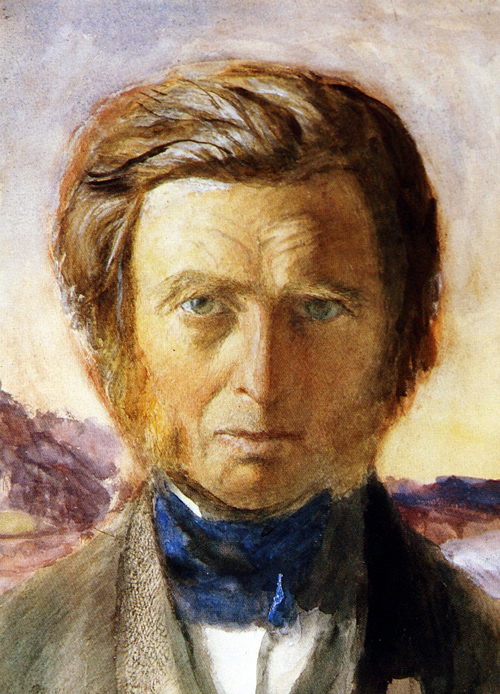
Your complimentary articles
You’ve read all of your complimentary articles for this month. To have complete access to the thousands of philosophy articles on this site, please
If you are a subscriber please sign in to your account.
To buy or renew a subscription please visit Subscriptions.
If you are a print subscriber you can contact us to create an online account.
Philosophical Haiku
John Ruskin (1819-1900)
by Terence Green
The stones of Venice
Solemn aesthete’s ecstasy
Art of transcendence

Self-portrait, 1875
John Ruskin was educated at home by his parents: his merchant father gave him Byron and Shakespeare to read, while his evangelical mother buried him in the depths of the King James Bible. In his autobiography, Ruskin cheerfully recalls that his childhood was marked by the absence of just two things: friends and toys. But his talents were many, and he would come to make his name as an innovative art critic, an art patron, a draughtsman, watercolourist, social critic, and philanthropist. He was a champion of beauty in art and nature, and of the possibility of art to lift us beyond the ordinary experiences of life.
…









